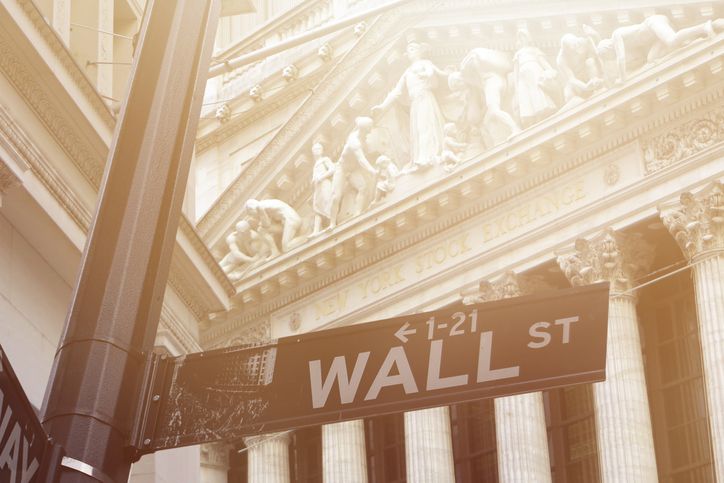At the annual Berkshire Hathaway meeting at the start of May, Warren Buffett sounded a gloomy note, warning that corporate earnings were likely to be lower as an ‘incredible period’ in American economic history drew to a close. He is not alone. There is an increasing gap between the optimism displayed by stock markets, and the views of some large investors.
Buffett and his team have been sounding a cautious note on markets for several months. Berkshire Hathaway’s cash pile has risen $2bn since the start of this year. It now sits at $130.6bn, its highest level since the end of 2021. The group has warned that investors need to reduce their expectations for stock market returns, given a slowing US economy and rising interest rates.
Fidelity’s multi-asset team echoes this gloom. Salman Ahmed, global head of macro and strategic asset allocation at Fidelity International, says: “We see downside risk in the developed market world even though consensus forecasts are coming down. On balance, we feel stronger about our base case of a hard landing for the US economy. We had this as a 55% probability at the start of the year, and it has increased now.”
Steven Bell, chief economist at Columbia Threadneedle, says the US may appear a long way from recession, but adds: “the lags in monetary policy are long and variable.” Ahmed agrees, saying the ‘refinancing wall’ is likely to act as a rolling drag on the US economy over the next few years. “At the moment, a lot of people and companies are not refinancing. Balance sheets haven’t rolled over into higher rates.” The pandemic has allowed refinancing to happen over a longer period of time. However, he says this will start to happen in 2024 and 2025.
The fragility of the banking sector is also likely to slow growth. Credit conditions were already slowing before the failures of Silicon Valley Bank and others, and the situation has worsened since. The most recent update to the Senior Loan Officer’s Opinion Survey, which gives an insight into current credit conditions, showed the percentage of banks tightening credit standards had increased, while the number of banks stating they were less willing to lend was in recessionary territory.
Bell says there is a scenario where inflation falls back below 2%, without causing a recession, allowing the Federal Reserve to cut interest rates, easing the pressure on the banking system, which can then prosper. However, he believes that scenario is highly unlikely: “It is much more likely that we’re going to see a credit crunch, more failures in the banking system, a US recession – albeit a mild one – before the US central bank delivers the interest rate cuts that are already priced into markets.” He forecasts a recession before year end.
This echoes the view of other managers, who see rates cuts as firmly off the table, whatever stock markets are forecasting. The BlackRock Investment Institute says: “We don’t see rate cuts this year – that’s the old playbook when central banks would rush to rescue the economy as recession hit. Now they’re causing the recession to fight sticky inflation – and that makes rate cuts unlikely, in our view. Stocks have held up due to hopes for rates cuts that we don’t see coming. We think the Fed could only deliver the rate cuts priced in by markets if a more serious credit crunch took hold and caused an even deeper recession than we expect.” Needless to say, that wouldn’t be good for markets either.
This isn’t a great picture for equity markets. Eugene Philalithis, head of multi asset investment management, Europe, Fidelity International, says that equity markets are only pricing in a soft landing. He points out that the S&P 500 is largely flat over the year, in spite of the Federal Reserve tightening, banks failing and persistent inflation: “Does it look right that the market should at the same level as a year ago?”
He is cautious on the US in particular, where there is more regional banking stress and where stock markets are more expensive. The group is keeping a focus on quality equities, and favours Europe, where companies are at a large discount to those in the US despite the better macroeconomic outlook.
However, the real strength is likely to be found in emerging markets, he says: “Emerging markets have seen inflation surprises on the downside. They may be the first to ease policy.” In general, emerging markets were first to raise rates and are much further through the cycle. Philalithis is also encouraged by the data emerging from China. He says that China is coming out of zero Covid, which is driving growth. While it is not a straight line in terms of the economic data, its recovery may also help other emerging markets. This means Fidelity prefers both emerging market equities and emerging market bonds.
BlackRock is taking a similar stance, moving up the scale on quality, and preferring emerging markets over developed markets. It says: “We prefer emerging market stocks in the short term as they benefit from China’s economic restart, emerging market central banks nearing the end of their hiking cycles and a broadly weaker US dollar.” It says they may consider going back into equities if problems over the US debt ceiling and fears on recession create a sharp fall in equity prices.
When the greatest investor of all time is holding $130bn in cash, perhaps it is time to take note. There is a certain reckless disregard for economic reality in some parts of the equity markets today. There could be tougher times ahead.







